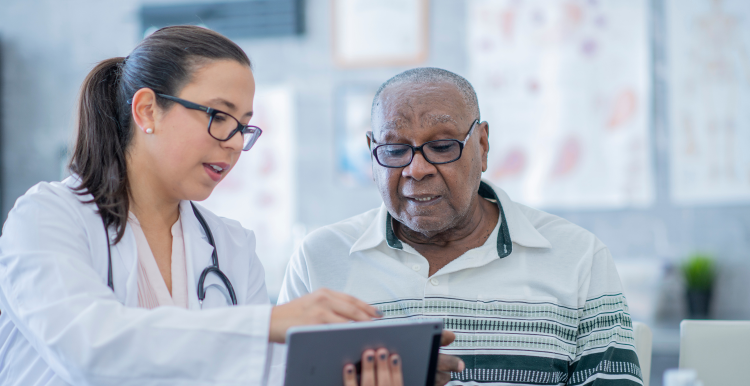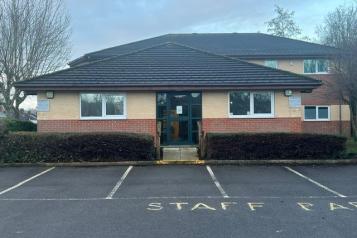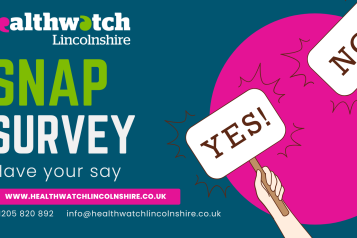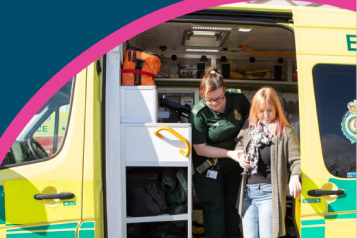Healthwatch Lincolnshire response to GP access in Lincolnshire - November 2023

Summary
Access to GPs is a longstanding public concern. GPs are usually the first port of call and gateway to being referred for specialist support. Unfortunately, people report barriers to access, poor communication from the practice, and a lack of choice.
People with disabilities and those rurally isolated have all shared stories with us about facing specific barriers to accessing GP services.
We want to make sure that people can get the care they desperately need. We also want the public to be able to choose the type of appointment that best meets their needs – whether that’s in person or remotely.
Our evidence
For a long time, GP access has been the most common issue people talk to us about. The pandemic had a major impact on access to services. In some cases, these changes led to improvements, but in other ways exacerbated issues. For example, access to GP services has become easier and more convenient for those who prefer remote appointments, using digital technology. However, where a patient prefers a face to face or feels there is a clinical need to be seen in person, they often report access becoming harder.
Key themes include:
- Difficulties making a GP appointment, including waiting several weeks for a non-urgent appointment. People struggle to get through on the phone, and those who work or have caring responsibilities can find it especially difficult if they are expected to ring at 8am. When people eventually do get through, there are no appointments left.
- This can create an unhealthy cycle of people having the same problem day after day, or result in attendance at Urgent Treatment Centres, A&E or put off seeking help with potential long-term harm, missed diagnoses and impacts on mental health.
- People’s preferences for face-to-face appointments are not met. Many felt that their conditions/issues could not be resolved over the phone or using digital services. They also felt a GP would be the most appropriate person to deal with their problem.
- Older people, people with limited English, those who are digitally excluded, those without access to the internet, and disabled people also face additional barriers to access, leading to increased inequalities.
- Although some people prefer digital appointments, there are still challenges. People told us that they did not get confirmation that their online request had gone through, were not contacted by a member of staff to discuss the issue they raised and did not appreciate the fact that they had no idea when a clinician would ring them back. Others found digital services impersonal and would prefer to speak to someone in person.
Patient Experience shared with Healthwatch:
Needs improvement:
“I tried to phone the doctors at 8am and I am 60th in the queue, so phone 111 and they sent an ambulance who took me in to Pilgrim Hospital. They were outstanding explaining I had angina and that I would need to contact my GP. Well I phoned the surgery 2 days later, to be told phone back next week we don’t have your record of your hospital stay. Unbelievable service, so still don’t have any medication for my condition just pain.”
“It’s near impossible to phone for a repeat prescription. One day I phoned at 12 noon, and slowly moved up the waiting list. I got so I was the next in line. That was after 6.30, and they shut the line down. There is a very real problem in getting passed the receptionist.
“The 8am Scramble, Repeat Calls, Online. The problem is that the quick and 'tech-savvy' manage while some old and disabled people are repeatedly left behind by the NHS -GPs and Hospitals etc- trying to make them fit in with how the NHS wants to communicate, mainly regarding making and attending appointments. There is widespread ignorance and reluctance to make exceptions despite AIS (accessible Information Standards) being a legal requirement.”
“Almost impossible to see a doctor, the staff are very friendly and helpful but cannot seem to fit in appointments, especially for us pensioners.”
What works well:
“Whenever I make contact via AskMyGP the service is excellent - staff are professional, efficient, and always friendly. When needed I have always been given an appointment on the day or a prescription after speaking with a Doctor.” A well-run surgery with no complaints, wonderful staff, both clinical and clerical.
“GP at Spilsby was excellent. Spoke to a GP, the same day I called, I had an appointment when I was free. I was sent to Boston Hospital within a day, chest x-ray and CT scan. Boston Hospital was also excellent.”
“Bardney Branch. Nothing is too much trouble. Good liaison between GP, Hospital and St Barnabas Nurse. GP visits our home without requesting a visit. Good referral pathway to Community Team. Since there was a change in the reception staff, there has been a huge improvement which is noticeable, very, very helpful now. AskMyGP answered promptly, professionally but also in a friendly way too.”
What action we have taken:
We responded to your concerns around GP services in multiple ways. Firstly, we shared your concerns with the practice managers to help them try to resolve the issues. For practices where booking an appointment over the phone was difficult, we asked if there was any other way to make appointments and some allowed for appointments to be made via email.
We often hear feedback around not being able to see a GP. To address this, we have produced a document called “Who is Who at your local medical practice?”.
This is available on our website here: https://www.healthwatchlincolnshire.co.uk/advice-and-information/2022-06-22/general-practice-whos-who-free-guide
It explains all the possible medical and non-medical roles that may be at your local medical centre and was supported by the Lincolnshire Integrated Care Board through their Senior Communications & Engagement Manager – Primary Care Team Kevin Gibson.
(We are busy working on a new version of this which will be available early 2024)
A formal review of GP access
NHS England has published its GP recovery plan.
What's in the plan?
- Better phone technology, enabling practices to ‘manage multiple calls and redirect them to other specialists, such as pharmacists and mental health practitioners, if more suitable’.
- Extra training provided to practice staff;
- Half a million people a year being able to self-refer to services including physiotherapy, hearing tests, and podiatry, without seeing their GP first;
- Almost half a million women being able to go into their local pharmacy for oral contraception;
- A change in local authority planning guidance to mean access to primary care for new residential areas are given the same level of importance as education.
The proposals outlined by NHS England are a step-change in how primary care services will be delivered, be it new digital phone systems to prevent people having to stay on hold for long periods of time or training up teams of care navigators to help patients manage GP referrals to other services. What’s more, these changes have been driven directly by people’s feedback and suggestions for improvement.
Healthwatch Lincolnshire Recommendations
- Patients should be able to contact their general practice more easily and quickly, both over the telephone and through digital appointment
- All GP practices in Lincolnshire should use a digital telephone system where patients receive a queue position, a call back option and their call can be directly routed to the right professional.
- Practices still need to maintain traditional models of access and care alongside digital and remote methods and support people to choose the most appropriate appointment type to meet their needs. To avoid widening Health Inequalities through digital exclusion.
- Help patients understand more about their condition and medication to support self-care and to alleviate repeat enquiries
- Ensure that information is provided and maintained on all GP websites about how to contact the GP to book an appointment and ask for help.
- Clearer communication with the public around why a remote appointment may be offered and guidance to support patients get the most from these.
- Support GP practices to consider how patients may have different communication needs and adapt the method of communication accordingly.
NHS Lincolnshire ICB Response
The national Delivery Plan for Recovering Access to Primary Care supports practices to improve access for patients by making it easier for patients to contact their practices, by phone or online or in person. This is supported by funding to improve telephony systems to tackle the 8am rush and for patients to know on the same day how their request will be managed. Cloud based telephony allows additional features, such as queue position and call back options, to provide an improved patient experience.
Patients will be supported to see the right health professional or service, moving away from a ‘first come, first served’ process to ensure patients are assessed and triaged to allow practices to provide the most appropriate care. This supports access or signposting to other appropriate services and allows practices to improve their ability and capacity to provide continuity of care, for vulnerable patients and those with long term conditions.
Patients are encouraged to respond to the Friends and Family Test questionnaire or engage with their practice’s Patient Participation Group to ensure they can let practices know what additional support they may need and also what is working well.
The ICB will continue to support GP practices to communicate effectively with their patients. This includes access to a wealth of health and wellbeing resources, advice and guidance on how to maintain an engaging website and social media presence, and support with building a thriving Patient Participation Group.
Lincolnshire Local Medical Committee
Response General Practice in Lincolnshire continues to work incredibly hard to meet the needs of patients during a time of ongoing significant challenge. 92% of all contact with the NHS is via general practice with patients needing a wide range of support. While general practice in Lincolnshire is providing record numbers of appointments with over 400,000 appointments or the equivalent of half the population having an appointment each month (around 20% more appointments than pre covid-19 and the highest in the midlands) we understand that patients would like more appointments and more flexibility in their access.
Providing this in a challenged NHS is difficult, but GP practices want to help their patients, and are working tirelessly to do so. Lincolnshire general practices are continually reviewing their services to strive to provide accessible, high quality and safe care.
It may be useful to highlight a few of the things that have changed that may make it feel like it is harder to get to a GP appointment despite those record numbers of appointments being provided.
The needs of our population have and will continue to change both in terms of increasing age and medical complexity. Nationally, there has been a 30% increase in the population of people over 70, with more medical conditions since 2010. These patients tend to value continuity of care and strong evidence as to the benefits of such continuity to their health outcomes exists. Conversely, the expectation for rapid access to one off episodes of care for younger, usually fit and well patients has increased significantly through the last few years, partly fuelled by online consultation tools, media campaigns and health concerns exacerbated by the covid-19 pandemic. The escalating needs of these very different cohorts of patients, make service delivery for general practice more challenging as we try to deploy models to help support the whole spectrum of patient medical and access needs. 15 years ago patients had an average of 4 appointments a year with their GP. The average is now around 10 appointments per year.
Additionally, there have been over 2100 GPs lost across the country in the last 8 years, and we have fewer GPs in Lincolnshire even in this last year, while our population has grown. GP practices are now looking after more patients, with fewer GPs, but providing more appointments.
Having fewer GPs and more patients is part of the reason patients may feel they struggle to see a GP. To help support their patients despite the GP shortage, most practices now have a wide range of other team members who can help patients which may include clinical pharmacists, first contact physio therapists, occupational therapists, care co-ordinators and several other roles. Many patients are offered appointments with these colleagues rather than a traditional appointment with a GP. Seeing a clinical pharmacist, an expert in medications may not be what patients traditionally expect when they have a medication query or need a medication review, but it is one way that general practice is modernising to give the best expert care for our patients while also supporting the reducing number of remaining GPs and their practices. The attached document is helpful to highlight this and other changing aspects of accessing your GP practice to raise awareness of available services and how you can access them.
There are more ways to access help, support and appointments from GP practices and the NHS than ever, but sometimes navigating all those options can be confusing or there may be barriers for patients to access those options. There is lots of work ongoing to help this all be easier, more clear and more convenient for patients. However, even if a patient can access their GP practice in multiple ways at a time convenient for them, the crucial thing is there needs to be a GP or one of our other colleagues to provide an appointment. We want to provide safe care and that means that your GP, as much as they want to help you, cannot safely give an appointment to every patient who requests one.
Most GPs work 10-12 hour days and if you are the last patient of 100 that day, fatigue can affect decisions and your GP does not want to do something that may risk your safety. I am sure we would all rather have an appointment with fresh, alert GP making sound decisions and that is one key reason why we can’t give everyone an appointment who requests one.
The above are just a few of the challenges on your GP practice that affect your ability to access and get an appointment, but be sure, your GP practice wants to help you and shares your frustrations around the current challenges of the NHS.
Your GP practice supports and continues to be actively involved in processes to improve and modernise the NHS to provide you with the best care and to improve working conditions for GP practice staff to stop them leaving. Please do be aware that the GPs, receptionists, nurses, practice managers and rest of the staff working in your practice are working hard to help you despite the pressures placed on them by a lack of national investment in the NHS.
They need the support of you, our patients to lobby MPs and government to robustly invest in the NHS and general practice so we can boost the GP and wider NHS workforce and our patients can access the right person at the right time and get the care they need.
Next steps
We will continue to feed insights into ongoing NHS England and Lincolnshire ICB work on GP access issues. We will also be re-producing an updated guide to support patients and the public better understand the roles and support GP practices and the wider system can offer. We will also be revisiting our recommendations in the new year to understand what improvements have been made to GP access in Lincolnshire.
A download link to the report is below. If you need the report in another format or would like to discuss anything, please email info@healthwatchlincolnshire.co.uk or call 01205 820 892.


